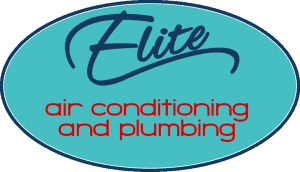5 Ways to Lower Summer Energy Costs (Guest Blog – HVAC.com)
5 Strategies To Lower Summer Energy Bill Costs
5 Ways To Lower Your Energy Bill
-
Keep curtains closed during the day
Sunlight can really heat up your home. Keeping your curtains and drapes closed, and your blinds shut during the day will prevent much of that energy from entering your home around and through the windows. Focus on covering east-facing windows during the morning hours and west-facing windows during the afternoon and evening to keep out direct sunlight throughout the day.
-
Use fans
A fan won’t have an impact on the temperature of the air, but it will improve the rate of evaporation in the room, which will make you feel cooler. As you sweat when temperatures are hot, it collects on your skin. When the air is still, evaporation takes longer, so you’ll feel warmer; when air is moving, evaporation occurs at a quicker rate, so you’ll feel cooler.
A fan also helps you feel cooler through convection by creating a wind chill effect. It moves warm air away from you and replaces it with cool air. In the summer, your fan should be set to rotate counter-clockwise so it will push air down. On many fans and ceiling fans, there is a switch which will allow you to change the direction of the fan’s rotation as the seasons change.
-
Use CFL light bulbs
The old incandescent light bulbs that may still be in use around your home produce a great deal of heat. Ninety percent of the energy used by an incandescent light bulb converts to heat, not light, which adds a great deal of heat to your home when the lights are on. If you’re not already using compact fluorescent lightbulbs (CFLs), you should make the switch this summer. They’ll not only save you energy, but reduce the heat output of the lighting in your home, saving you money on cooling costs.
-
Change your cooking methods
Ovens and range tops produce high temperatures to cook your food, and they also add heat to your home. To keep your cooling load down, use low-heat methods to cook foods, such as a crockpot or microwave. These appliances produce very little heat compared to a standard stove or range. Or, take your cooking outdoors to the grill!
-
Replace your air filter
Air filters need to be checked and possibly changed more frequently in periods of heavy use. Clean air filters improve airflow throughout the home so air conditioners don’t have to work as hard to keep your home cool. A dirty filter requires your AC system to use more energy to keep your home comfortable in the summer, driving up your electricity bill.
-
Follow the forecast
Outdoor temperatures can vary greatly over the course of a day. While it may be a scorcher outside during the day, the temperature drop overnight can be quite cool. Follow your local forecast to see if overnight temperatures will be comfortable, so you can shut off the AC and open the windows, taking advantage of natural cooling to save money without sacrificing comfort
– See more at: https://www.hvac.com/blog/5-strategies-to-lower-summer-energy-bill-costs#sthash.VbFB3qAf.dpuf



 We are proud to have earned over 700 Google Maps Reviews and a staggering 4.9 Rating.
We are proud to have earned over 700 Google Maps Reviews and a staggering 4.9 Rating.